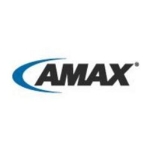What is most valuable?
This sounds dumb, but it just works. I don't want to have to deal with support, and I don't need to because, again, it has just worked.
How has it helped my organization?
It allows me to focus on other things. Backing up databases. More efficient.
Everybody's short staffed. We're short staffed and so it's allowed me to take on other stuff, and it just sits there and runs. It's not sexy but it does the job.
What needs improvement?
Upgrades are always scary because you just don't know. Nobody has six or seven different systems sitting around that you can test on before you go into production data.
My complaints are all ticky-tacky, not from a "vision" perspective. If VSC worked properly. It's for disaster recovery. If you have storage networks that are identical across datacenters then it doesn't work for picking off SnapMirrors. That's not a FlexPod thing so much as just a NetApp product thing and they're aware of my issue with that.
Some of the things have not been incredibly intuitive, but once I figured them out they work. That's a matter of their engineers think differently than my mind works. For some, that's a Mac versus Windows thing right there. Windows makes perfect sense for some people and Macs make perfect sense for other people and it doesn't mean one's better than the other. It's just some people like different things.
One of the things that has been less than intuitive is how UCS views storage when you're implementing something new. Some of the 9X ONTAP stuff is just different. It's not less intuitive, it's just different now, and I think I've actually kind of adapted to that. When it's complex there's no easy way to do it, that's why it's complex. But for the most part, they made pretty complex things rather intuitive, so I'm okay with that. It's just different than my mind would think out of the box.
For how long have I used the solution?
At least ten years, at this and another company.
What do I think about the stability of the solution?
So far so good. (I don't want to jinx myself).
I have no complaints. You have a DIMM go bad or you have a disk drive die or something like that, but for the most part it just sits there and runs, like I said, which is what I want.
There have been some things. Whether it's an upgrade, whether it's, "Oh, we've got to move this storage from here to here to support this," or whatever. Yes, there's downtime, but the majority of it has been planned. It's once a month, once every two months, something like that. It's not that bad.
What do I think about the scalability of the solution?
I haven't had to cross that bridge yet, but I'm sure it's there if I need it. Don't get me wrong. Scalability's been a big thing because we suddenly needed to maintain backups for a lot longer and I needed more storage space. We went from a half a petabyte to a petabyte within months because we needed to and it worked fine, so I guess that's good, considering it wasn't part of the plan initially.
How are customer service and technical support?
Well, the one time it was really a problem, it was good and they fixed the problem eventually. The other time they didn't make me feel stupid because it was my fault, so that was good, too.
Which solution did I use previously and why did I switch?
I was hired to migrate a datacenter from an infrastructure that sucked to a new location on a better infrastructure, and so I put out the RFP for that and was involved in the purchasing decision, although not exclusively.
And unsurprisingly, FlexPod won. Partially, it had a leg up because that was what I knew backwards and forwards and trusted. I had an impact on that, and yes, it was intentional, but frankly it was the best solution for us.
How was the initial setup?
Uneventful. It is more complex than setting up a laptop, so it took more time, but at the same time we did implement it in what most of our partners felt was record time, so that was good.
Which other solutions did I evaluate?
We did look at Vblock for about ten seconds til we got the price, and frankly we knew they weren't going to work anyway. Not just the price, but it didn't fit us. But that was the only other integrated one
We did sort of look a little at the one that HPE just bought, Nimble. We looked into 3PAR; and I didn't even know what EMC "product of the week" we looked at, but we looked at those as well.
What other advice do I have?
The way the model is now, where, at least with NetApp, effectively you have a partner actually doing the implementation, not an actual NetApp employee - which is fine - I'm looking for good partner knowledge of it. Whoever's setting it up, I want them to know the product, whether it's UCS or whether it's NetApp or whatever. That's critical because I've actually had people that didn't really know what they were doing show up on our doorstep to set stuff up, and that's never good for anybody.
You can't just say you'd want it to be a simple "one button," push this button and everything works sort of a thing either. Not just for job security reasons but because I don't think it's possible, at least at this point in technological terms, to have things be much simpler and still give you the flexibility that you're getting. You get what you put into it. I probably could have made our setup a lot less complex, and I probably wouldn't have nearly the flexibility that I have.
A 10 out of 10 would be a "one button" mind-reading setup; and again, there goes my job. It would be things that just aren't available at this point, such as I'd like to pay very little for this and yet have zero down time, even for upgrades and things like that. It's just not there yet. Someday maybe it will be, but...
I would say it's more important to plan it out and do it right than it is to get it implemented quickly. I would say, no matter how static things are for you, there's going to be change and you probably should know how to make those changes or adapt to those changes as time goes by. That is part of the FlexPod, which comes down to the UCS side of the things. I did not envision needing to change networking as much as I have changed networking for a lot of the machines, so that ability has been really nice. So sometimes you don't know what you will need, what features. Sometimes it's just nice to have the features even though you're never going to use them, because you might.
Disclosure: My company does not have a business relationship with this vendor other than being a customer.









